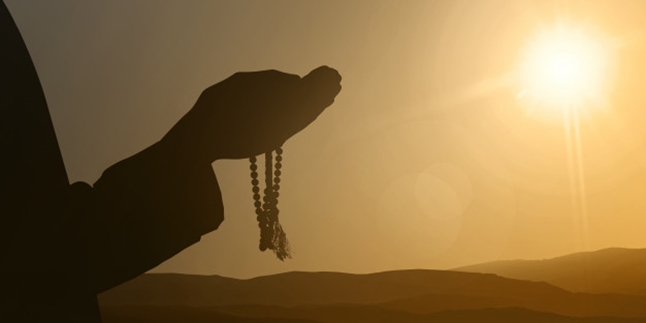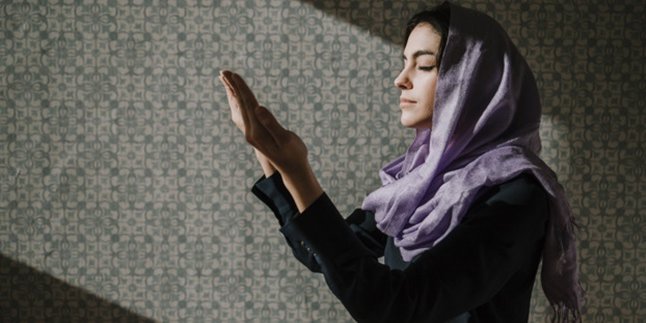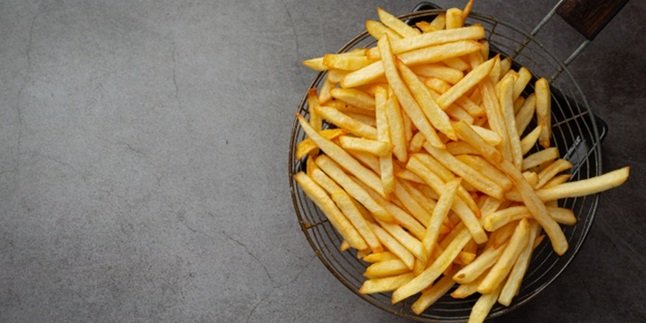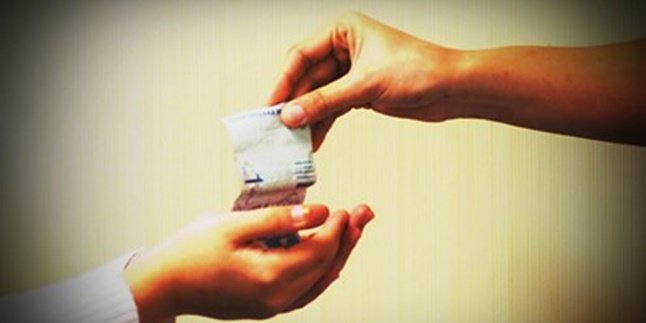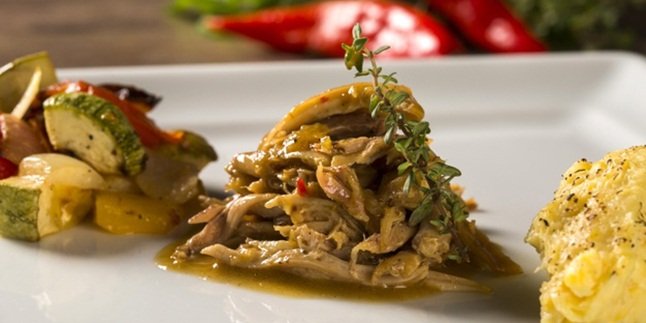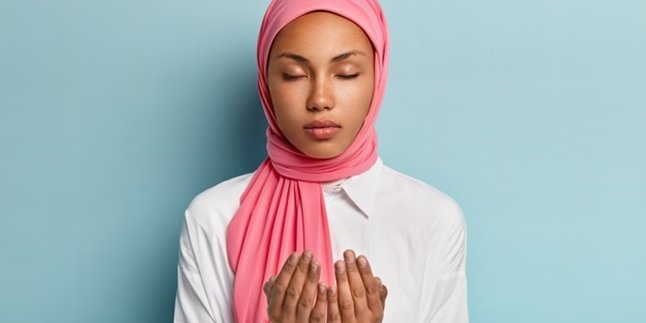Kapanlagi.com - Idul Adha is a major holiday celebrated by Muslims worldwide. Idul Adha is celebrated on the 10th-13th of Dzulhijjah. On this holiday, sacrificing is a recommended tradition. However, unfortunately, not many people know that there is a law regarding cutting nails and hair before sacrificing, KLovers.
Sacrificing is usually done by slaughtering a cow, goat, or camel. This practice is a highly recommended sunnah, especially for financially capable Muslims. Similarly, the prohibition of cutting hair and nails before sacrificing is a strongly recommended sunnah. Although there is still debate about the law of cutting nails and hair before sacrificing.
According to Imam Malik and Syafi'i, cutting hair and nails after sacrificing is considered a recommended sunnah. Meanwhile, cutting them before sacrificing is considered makruh (disliked). So, what is the explanation of the law of cutting nails and hair for those who will sacrifice?
For that reason, here is an explanation of the law of cutting nails and hair for those of you who will sacrifice, as reported from various sources.
1. The Law of Cutting Nails and Hair Before Sacrificing

Law of cutting nails and hair before sacrificing (credit: Freepik)
The law regarding the prohibition of cutting hair and nails before sacrificing has long been a subject of debate among scholars. The opinion of Imam Malik and Shafi'i is that it is recommended to cut hair and nails after sacrificing. While cutting hair and nails before sacrificing is considered disliked.
However, there is an opinion from Abu Hanifah that cutting hair and nails before sacrificing is permissible or can be done. This means that cutting nails is neither disliked nor recommended. Meanwhile, there is an opinion from Imam Ahmad that forbids it.
Imam Nawawi in Al-Majmu' asserts that the recommendation to prohibit cutting hair and nails is closely related to rewards. If a Muslim practices it, then all parts of his body will be saved from the fire of hell because of his testimony. Just like performing the sacrifice that can save someone from the torment of hellfire.
Therefore, with all the explanations above, it is still unclear whether cutting nails and sacrificing before performing the sacrifice is recommended or obligatory. It has not been conclusively determined. However, what is certain is that the sacrifice must be intended with a pure heart for the sake of Allah. Because Allah knows His servants best.
2. Prohibition of Cutting Hair and Nails Similar to Ihram Haji

Prohibition of cutting hair and nails (credit: Freepik)
Although the law of cutting hair and nails is not certain, many people choose not to cut their hair and nails. This is because all parts of the body will be saved from the fire of hell. Apart from the rewards and testimony of all body parts in the hereafter, this practice is also equated with Ihram Haji.
This means that during the first ten days of Dhu al-Hijjah, a person who will perform Ihram is not allowed to cut their nails. This is stated in a hadith which explains as follows:
"When the first ten days of Dhu al-Hijjah have entered and one of you intends to sacrifice, then do not touch your hair and skin at all, until (the sacrifice is completed)." (HR Ibn Majah, Ahmad, and others).
This opinion states that cutting hair and nails should be done after the sacrifice of the animal is completed. Specifically, it starts from the first ten days of Dhu al-Hijjah. However, Imam Nawawi contradicts this by saying that there is a testimony of all body parts that will be saved from the fire of hell.
3. Prohibition of Cutting Hair and Nails Before Sacrificing Animals

Prohibition of cutting hair and nails before sacrificing (credit: Freepik)
After knowing about various opinions regarding the law of cutting nails and hair for someone who will sacrifice animals. There is also another opinion that discusses the prohibition of cutting hair and nails before sacrificing animals. This third opinion is not quite popular in classical Fiqh books. This is what makes Mula Al-Qari refer to this third opinion as quite unique and unfamiliar.
The third opinion states that the prohibition of cutting hair and nails before sacrificing is actually for the animals themselves. Specifically, it is a prohibition to cut the fur, nails, and skin of the sacrificial animals. Aisha RA heard the Prophet Muhammad SAW once said:
"There is no deed of the children of Adam that is beloved to Allah on the day of Eid al-Adha except sacrificing. Because it will come on the Day of Judgment with its horns, fur, and nails." So fast, the reward of sacrifice has reached Allah before the blood of the slaughtered animal falls to the ground. So adorn yourselves by sacrificing." (HR Ibn Majah)
The uniqueness of this third opinion is then emphasized by the existence of a hadith narrated by Aisha Ra. The Prophet Muhammad SAW said that there is no deed more beloved to Allah SWT on the Day of Judgment than sacrificing. The horns, fur, and hooves of the sacrificial animal will testify on the Day of Judgment. The reward for sacrificing has also reached its owner after the blood of the sacrifice falls to the ground.
Here is the content of the hadith: "For those who sacrifice, every strand of hair (fur of the sacrificial animal) is a goodness." (HR At-Tirmidzi)
4. Sunnah Practices during Eid al-Adha

Practices during Eid al-Adha (credit: Freepik)
After knowing the explanation of the law of cutting nails and hair for those who will sacrifice, there are also some sunnah that can be done by someone who will sacrifice or all Muslims. These deeds have a sunnah law, if done, will receive rewards. And if not done, will not receive sins. Here are some sunnah deeds that you can do:
- Takbir
The first sunnah deed on Eid al-Adha is to perform the takbir activities. On the night of Eid al-Adha, all Muslims are encouraged to recite takbir in every mosque, musalla, and houses. The recitation of takbir begins from the sunset until the imam ascends the pulpit for the sermon during the Eid prayer and ends on the tashreeq days on the 13th of Dhu al-Hijjah.
- Bathing
Then the second is by taking a bath. Just like when performing Eid al-Fitr prayer, before going to the mosque or field, Muslims who will perform Eid al-Adha prayer are encouraged to take a bath and cleanse themselves first. This can be done starting from midnight, before dawn, and it is preferable to do so after dawn. This is because the purpose of bathing is to clean the body from unpleasant odors and make the body feel fresh and energetic, so bathing before departure time is the best.
- Clean Clothes
During Eid al-Adha, it is also recommended to wear our best clothes. It is recommended for us to wear white clothes. While for men, it is recommended to wear fragrance and women are not. In the book Raudlatut Thalibin, it is explained:
"It is recommended to wear the best clothes, and it is preferable to wear white clothes and also wear a turban. If one only has one piece of clothing, then it is fine for them to wear it. These provisions apply to men who are going to perform the Id prayer or not. As for women, it is sufficient for them to wear regular clothes as their daily attire, and they should not overdress or wear perfumes."
- Walking
Next, it is recommended to walk to the mosque to perform the prayer. The purpose is for fellow Muslims to greet each other on the way, thus strengthening the bond of brotherhood. Additionally, it is also advised to leave early for the prayer location.
- Not Eating
Lastly, on the celebration of Eid al-Adha, it is recommended to eat after performing the prayer. If on Eid al-Fitr it is recommended to eat before performing the prayer, then on Eid al-Adha, Muslims are encouraged to fast before performing the Eid al-Fitr prayer.
These are the rules regarding cutting nails and hair for those who will perform the sacrifice. Hopefully, by knowing all these explanations, you can enhance your worship to Allah SWT during Eid al-Adha.
(kpl/dhm)
Disclaimer: This translation from Bahasa Indonesia to English has been generated by Artificial Intelligence.
